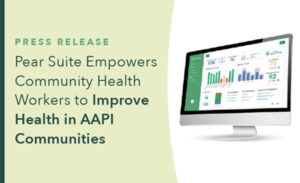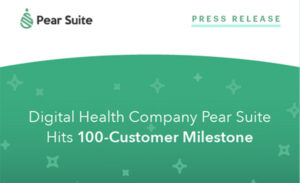It’s well-known that members of the LGBTQ+ community face significant social and health disparities compared to their heteronormative counterparts. Rates of anxiety, depression, sexually transmitted diseases, cancer, self-harm, and interpersonal violence have been all more prevalent among LGBTQ+ youths and adults in the last five years.
The prevalence of social drivers of health is also high. As many as 28% of LGBTQ youths have experienced homelessness at some point in their lives. Other sources estimate that up to 30% of the community experiences substance abuse compared to less than 10% among the general population. Social stigmas and discriminatory hiring practices only compound these issues, making LGBTQ+ people less likely to have health insurance.
The availability and affordability of health coverage means that this community may be even more likely to qualify for Medicaid coverage. This, plus, the high need for social and health support positions community-based organizations (CBOs) and community health workers (CHWs) as the best source of relief and support to improve health outcomes for LGBTQ+ people across generations.
Medicaid coverage and CHW services for LGBTQ+ beneficiaries coast-to-coast
Thankfully, changes to Medicaid programs nationwide have allowed CBOs and CHWs to get reimbursed for certain care coordination and advocacy services to advance health equity for the LGBTQ+ community.
States that allow Medicaid reimbursement for CHWs typically qualify care services in six areas: care coordination, systems navigation, health coaching and education, patient advocacy, clinical support, and community outreach. Unfortunately, some states don’t reimburse CHW services through Medicaid programs.
And it’s not uncommon to find that the states that don’t reimburse services also restrict or disallow Medicaid from covering certain services specific to the LGBTQ+ community, making quality care that much more challenging.
CalAIM expands MediCal to reimburse community services
In July 2022, the California Department of Health Care Services (DHCS) added CHW services as Medi-Cal benefits. The inclusion was introduced as part of Cal-AIM, a years-long transformation of the Medi-Cal program to incentivize providers to improve total health outcomes through more of a value-based care approach.
Today, CHWs can help Medi-Cal beneficiaries access mental health services, domestic and other violence prevention services, address homelessness, and manage chronic conditions, among other services. And they can get reimbursed for services through Cal-AIM’s Enhanced Care Management (ECM) and Community Support initiatives.

Idaho and Texas prohibit the use of Medicaid funds for gender-affirming care
Neither Idaho nor Texas reimburses CBO or CHW services as part of their state insurance programs. However, Managed Care Organizations (MCOs) in Texas may use certified CHWs or promotores for member outreach and education activities for unspecified health conditions.
However, in March 2024, Texas Senate Bill 14 went into effect. It prohibits Medicaid beneficiaries from using public funds to treat gender dysphoria, transitioning, or reassignment. That same month, Idaho’s governor signed House Bill 668 into law, prohibiting transgender adults and minors enrolled in the state’s insurance from receiving gender-affirming medications or procedures.
These are two examples of state-endorsed roadblocks LGBTQ+ youths and adults face as they seek health services and social resources.
MassHealth covers gender-affirming care, permits funding for the use of CHWs
In the state of Massachusetts, on the other hand, CHWs are funded through an 1115 demonstration waiver that includes provisions that incentivize MCOs to use CHW services. Provisions include technical assistance to improve, support, or establish care coordination practices. On top of that, the state’s Medicaid program, MassHealth, covers a range of gender-affirming services, from hormone therapy and surgery to speech therapy and some types of hair removal.
Care coordination and other community services advance health equity for the LGBTQ+ community
Care coordination includes a number of activities, and they all play a role in advancing care and health outcomes for the LGBTQ+ community. Community health workers providing care coordination take a patient-centered approach to communication, collaboration, and education, bridging the social and economic gaps between high-risk, low-access, or marginalized individuals and quality care.
Among the many organizations that support care coordination for the LGBTQ+ community, the California-based advocacy group MoPride and the 501(c)(3) nonprofit OutCare stand out.
MoPride partners with youth and educational agencies to provide outreach and activities to community members and their families. They host community presentations specifically to support the health needs and wider education around the LGBTQ+ community and speak on topics like sexual orientation and gender expression, mental health, inclusive sex education, housing and employment discrimination, and the collection and use of sexual orientation and gender identity (SOGI) data.
Meanwhile, OutCare provides comprehensive resources, support, and education for LGBTQ+ members. They also work with patients to improve care coordination and health outcomes by connecting them to affirming partners and essential health and welfare resources.
Both organizations partner with Pear Suite to track and manage community services provided, including education, outreach, advocacy, and closed-loop referrals. Since they also work with providers, health plans, and health systems to provide inclusive care, they rely on the interoperability of the care navigation platform to connect to electronic health records (EHRs) and health information exchange (HIE) systems.
Three ways care navigation technology supports LGBTQ+ health outcomes
Advancing health outcomes for the LGBTQ+ community is possible because CHWs and CBOs are committed to providing advocacy, education, and care coordination, among other community services, and seeking avenues for funding, such as Medicaid reimbursement where eligible. However, for this to happen at scale, those offering services must graduate from relying on paper and spreadsheets.
That’s where care navigation software like Pear Suite can reduce the administrative burden by digitizing and simplifying care navigation, reporting, and Medicaid billing and reimbursement processes. Pear Suite gives CHWs a single hub to capture and document all services and for each Medicaid beneficiary.
1. Accessible SDOH data connects patients and providers
Pear Suite is interoperable with electronic health records and health information exchanges, so CHWs can share client data collected with doctors, nurses, and providers to improve the healthcare experience for their clients. Thus, ensuring that LGBTQ+ communities get inclusive, high-quality care and managed care organizations are meeting value-based care expectations by having a better picture of a patient’s circumstances.
2. Improve referral partnerships, validate impact stories
Pear Suite has an embedded closed-loop referral system and other features make it even easier for CHWs and community providers to connect beneficiaries to partners or resources that address social, physical, and mental health needs.
This goes beyond the typical closed-loop referral system by allowing community providers to follow up with the member with the embedded, encrypted call and text center and determine whether they accessed the resource. If not, they can identify barriers and provide education or additional support to address the roadblocks.
By truly closing the loop, CHWs and CBOs can learn about the effectiveness of the referral, helping them evaluate partnerships, and also about the needs of their communities, making it even easier to apply for grants and tell more valuable impact stories.
3. Socially sensitive health education promotes accurate, unbiased knowledge
Care navigation solutions help CHWs assign and track the use of health education resources. When a patient or beneficiary in the LGBTQ+ community needs support around a specific health need, CHWs can share inclusive and socially sensitive education resources. And it ensures that clients and patients get reliable, vetted, unbiased information instead of turning to vague online searches, forums, or influencers for health information.





